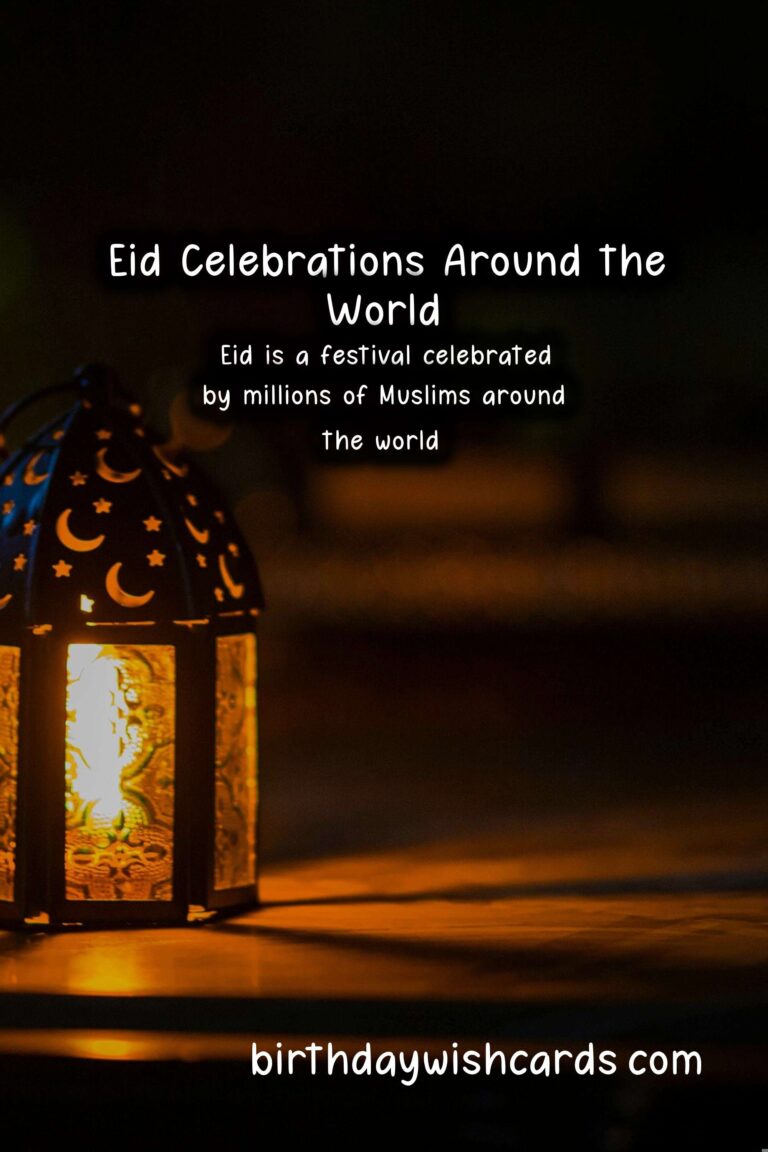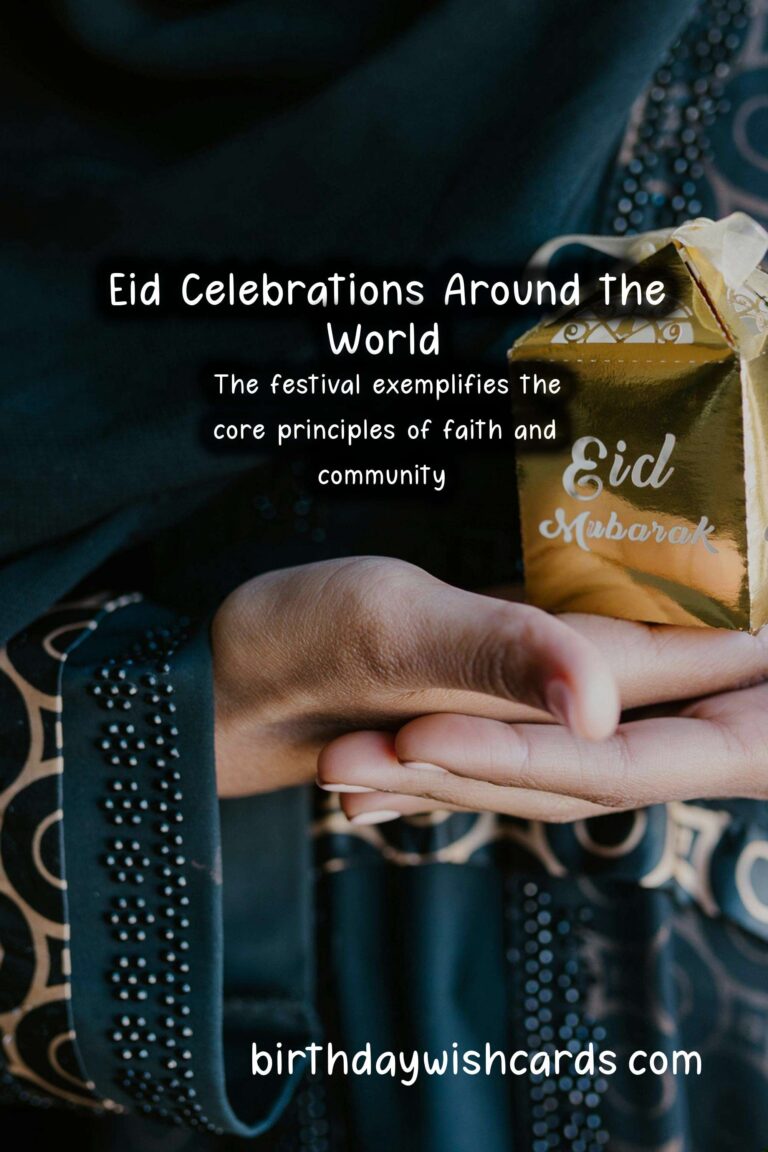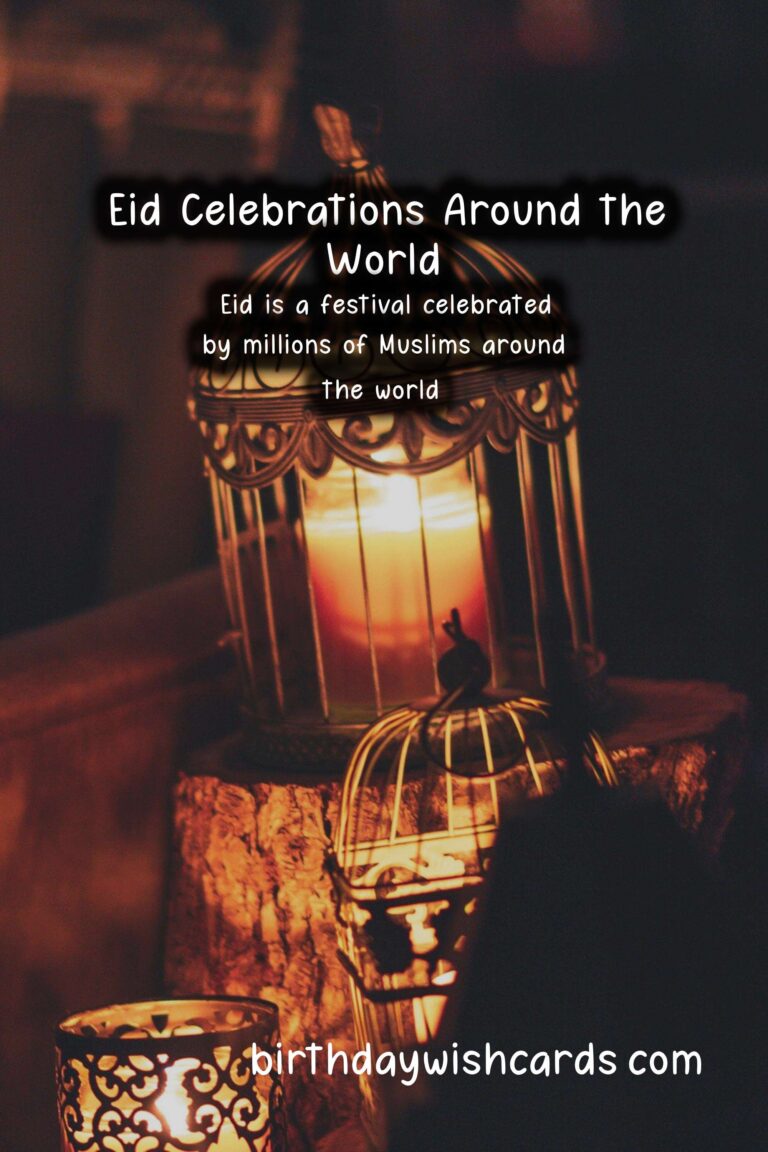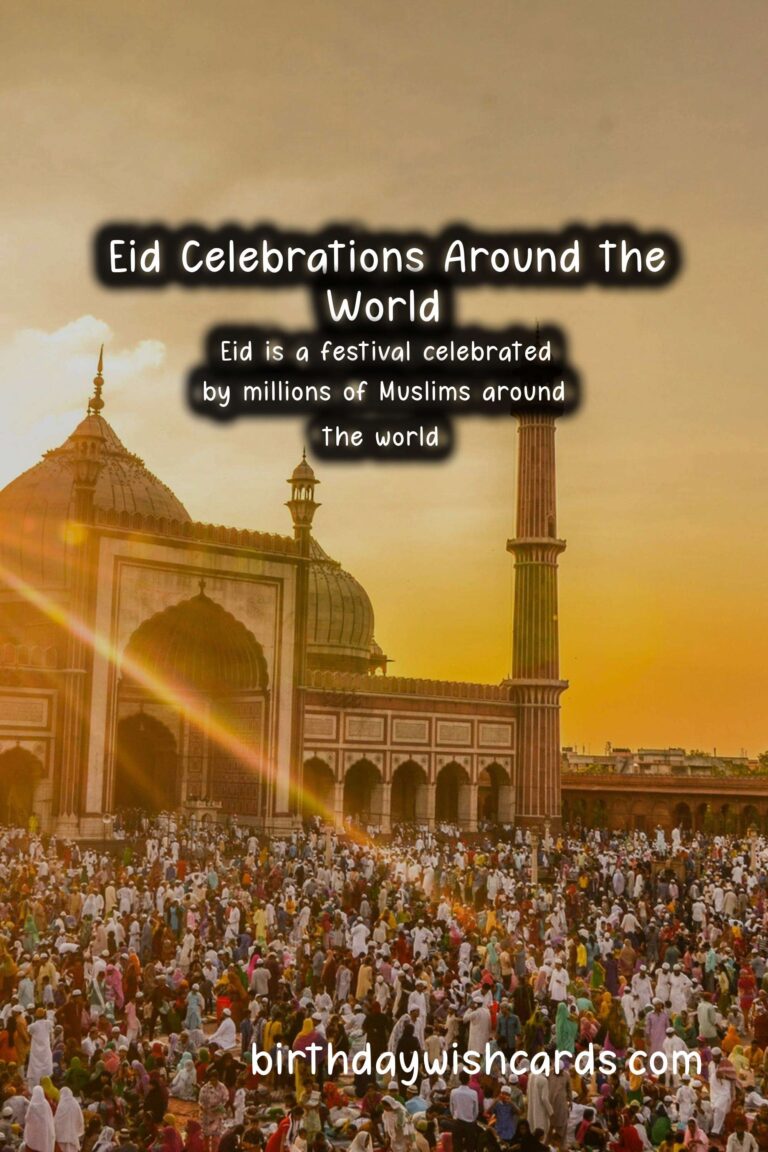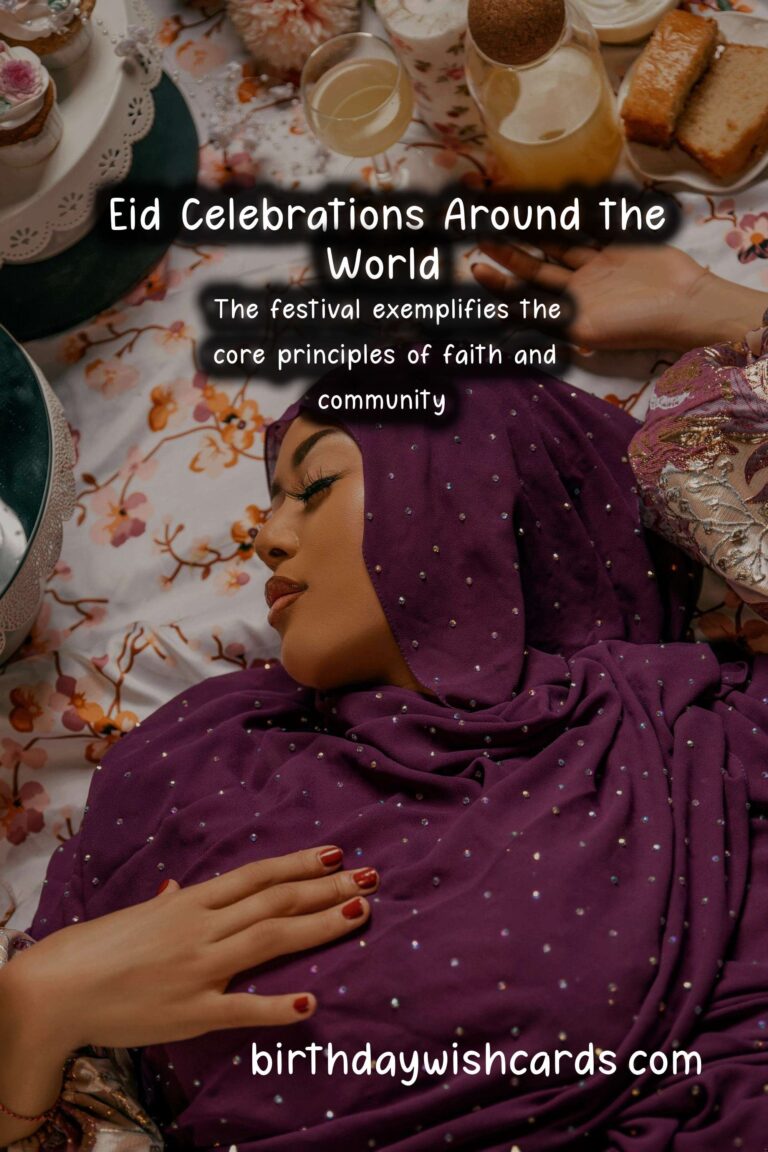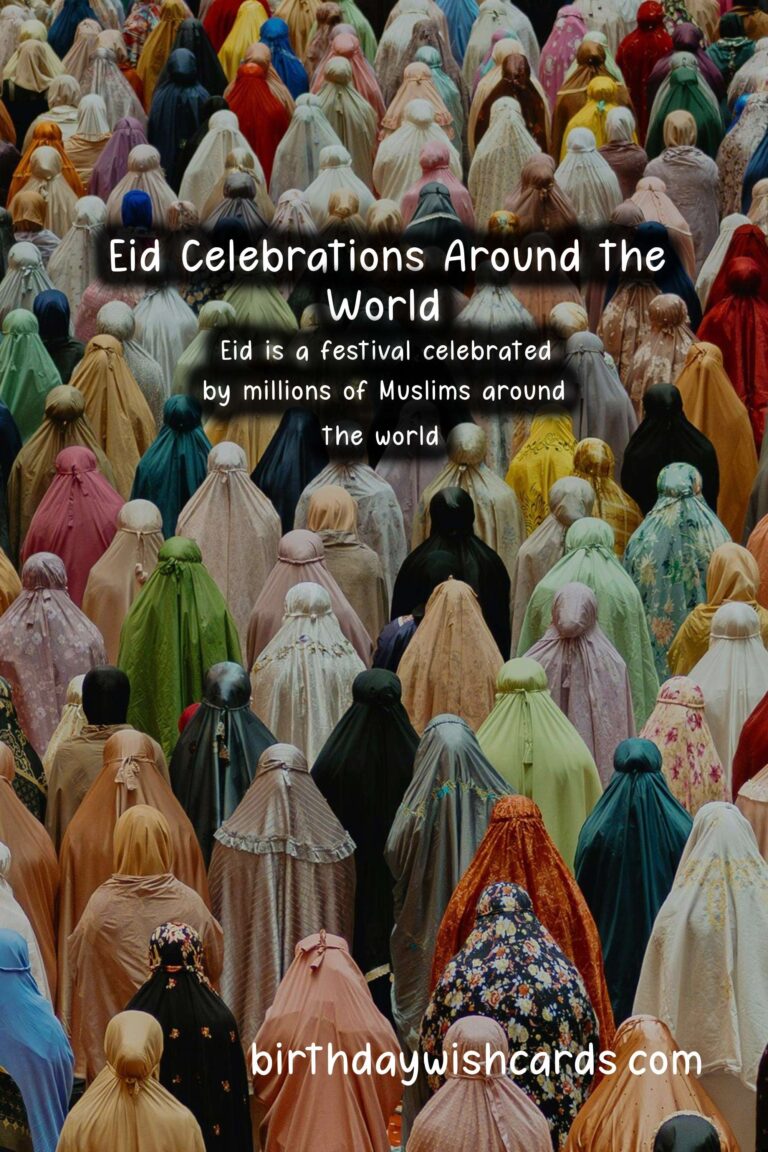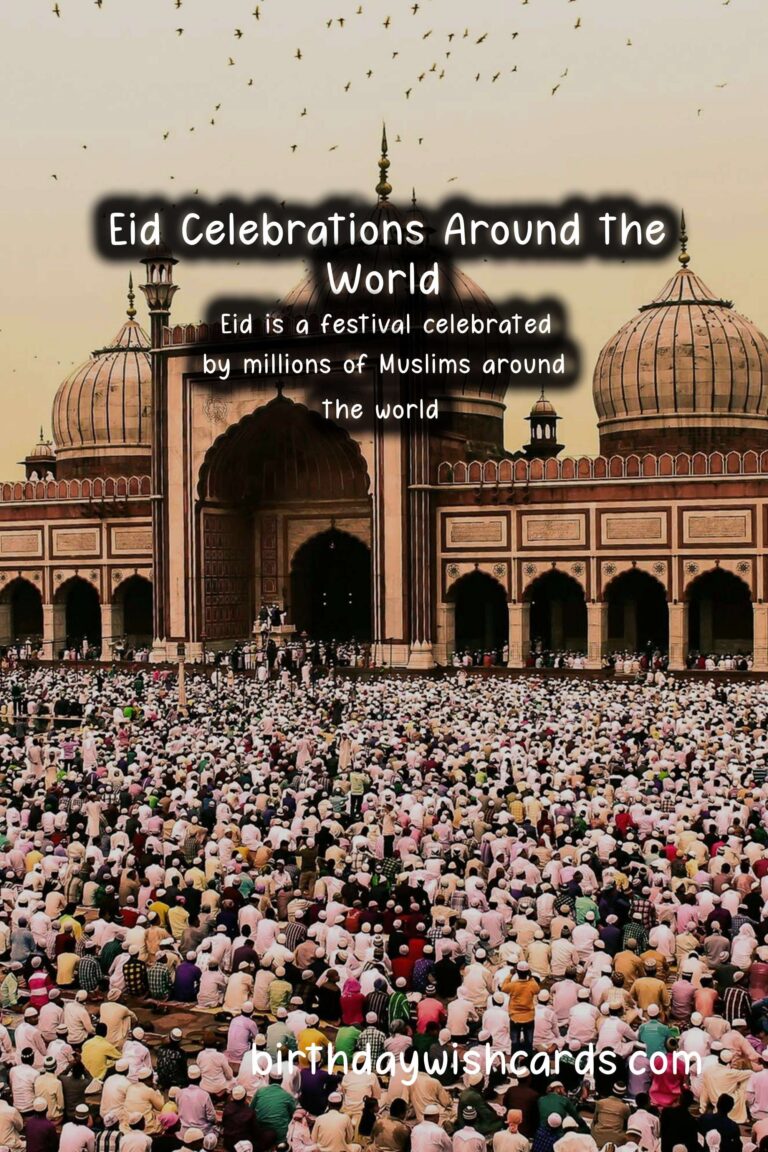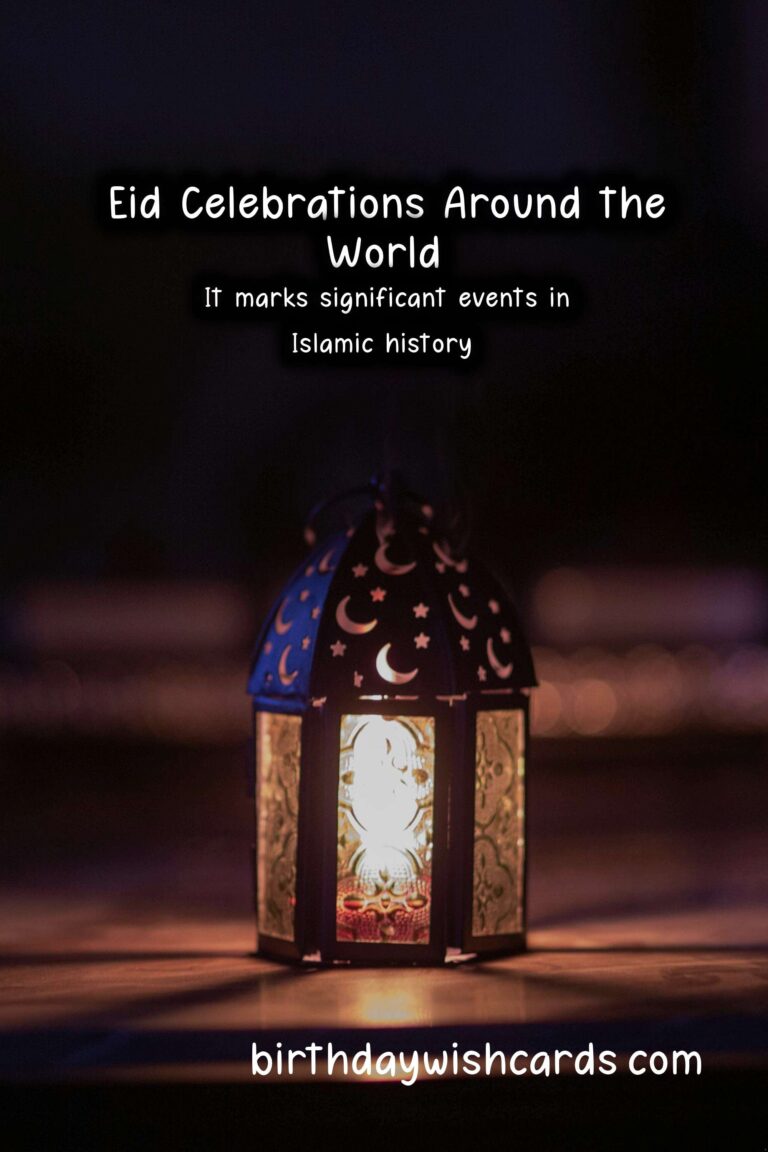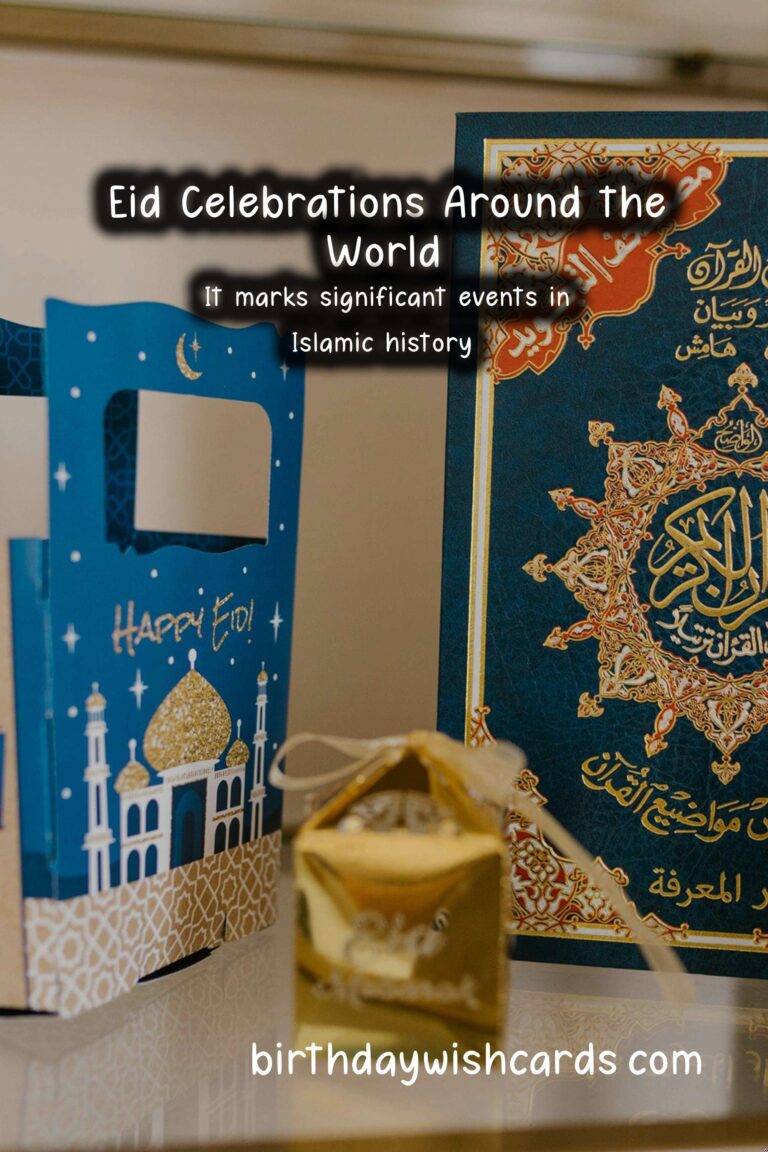
Eid, a festival celebrated by millions of Muslims around the world, marks significant events in Islamic history and exemplifies the core principles of faith and community. Commemorating the concluding day of Ramadan and the willingness of Prophet Ibrahim (Abraham) to sacrifice his son in obedience to God’s command, Eid holds deep spiritual meaning.
Understanding the Two Major Eids
There are two major Eids celebrated by Muslims: Eid al-Fitr and Eid al-Adha. Each of these holds distinct historical relevance and traditions.
Eid al-Fitr: The Festival of Breaking the Fast
Eid al-Fitr is observed at the end of Ramadan, the holy month of fasting. It was established by the Prophet Muhammad as a day of festivity after a month of self-discipline and abstinence. The festival falls on the first day of Shawwal, the tenth month of the Islamic lunar calendar.
On this joyous occasion, Muslims gather for a special prayer, known as the Eid Salah, which takes place in congregation. Before the prayer, it is customary to give Zakat al-Fitr, a charitable donation intended to purify those who fast from any indecent act or speech and help the less fortunate partake in the celebrations.
Eid al-Adha: The Festival of Sacrifice
Eid al-Adha, also known as the ‘Festival of Sacrifice’, commemorates the willingness of Prophet Ibrahim to sacrifice his son as an obedience to God. This Eid falls on the 10th day of Dhu al-Hijjah, the last month of the Islamic calendar. The festival coincides with the annual Hajj pilgrimage, making it especially significant.
Muslims participate in a ritual sacrifice, known as Qurbani, where animals are sacrificed and the meat is shared among family, friends, and those in need. This act symbolizes piety, generosity, and social responsibility, reinforcing bonds within the community.
The Cultural Influence of Eid
Eid is not only a religious observance but a culturally rich event that transcends borders. Each region may have its own unique customs and practices that reflect its cultural heritage while remaining rooted in the core Islamic tenets.
The Rich Tapestry of Traditions
For instance, in South Asia, people wear new clothes, often colorful and ornate, to mark the festive occasion, while in Middle Eastern countries, traditional dishes are prepared and shared amongst families and neighbors.
All around the world, Eid is a time of joy, family gatherings, and communal prayers, demonstrating the universal values of love and fellowship that are celebrated within the Islamic faith.
Eid as a Time for Reflection and Renewal
Beyond the celebrations and festivities, Eid serves as a period for personal reflection and spiritual renewal. Muslims view it as an opportunity to strengthen their ties with Allah, reaffirm their commitments to their faith, and embrace the principles of humility and charity.
During Eid, Muslims are encouraged to reflect on the lessons learned during Ramadan, focusing on gratitude, compassion, and generosity. These virtues are meant to be carried forward throughout the year, embodying the spirit of Eid in everyday life.
The Role of Eid in Building Community
Eid has a unique capacity to bring together individuals across different backgrounds, promoting harmony and understanding among diverse populations. The act of sharing food, gifts, and goodwill reinforces bonds, inviting participation from all members of society.
Communities often organize events, such as fairs and cultural showcases, aimed at providing a space for people to celebrate together, thus fostering an inclusive atmosphere where friendships can flourish.
Eid Celebrations Around the World
The observance of Eid varies greatly around the globe, influenced by cultural contexts and local traditions. Let’s explore how different regions celebrate this momentous occasion.
Eid in Indonesia
As the country with the largest Muslim population, Indonesia sees grand celebrations during Eid al-Fitr, which is known locally as Lebaran. Families gather to seek forgiveness from each other, sharing traditional foods such as ketupat, and visiting friends and relatives.
Eid in North Africa
North African countries, like Egypt and Morocco, indulge in elaborate feasts and communal prayers. People often decorate their homes and don festive clothing to mark the occasion.
Eid in Turkey
In Turkey, Eid (known as Ramazan Bayramı or Şeker Bayramı) is a three-day celebration marked by visits to cemeteries, giving gifts, and preparing delicious sweets. It emphasizes the importance of family and remembrance.
The Spiritual and Ethical Dimensions of Eid
The spiritual dimensions of Eid extend beyond the wondrous festivities. The principles of charity, community, and cultural comprehension establish a framework for ethical living within the Muslim community.
Elevating social responsibility, Eid encourages good deeds throughout the year, marking a profound connection to one’s faith and community.
Conclusion: Embracing the Essence of Eid
Eid embodies the essence of joy, love, community, and faith in Islam. It represents not just a ritual celebration but a spiritual journey that reinforces important values and beliefs. As Muslims come together in their diversity to celebrate, it bridges gaps and creates pathways towards understanding and unity.
As we honor this deeply rooted tradition, we are reminded of the importance of collectively building a brighter, more inclusive future, inspired by the teachings of our faith.
Eid is a festival celebrated by millions of Muslims around the world. It marks significant events in Islamic history. The festival exemplifies the core principles of faith and community. 
